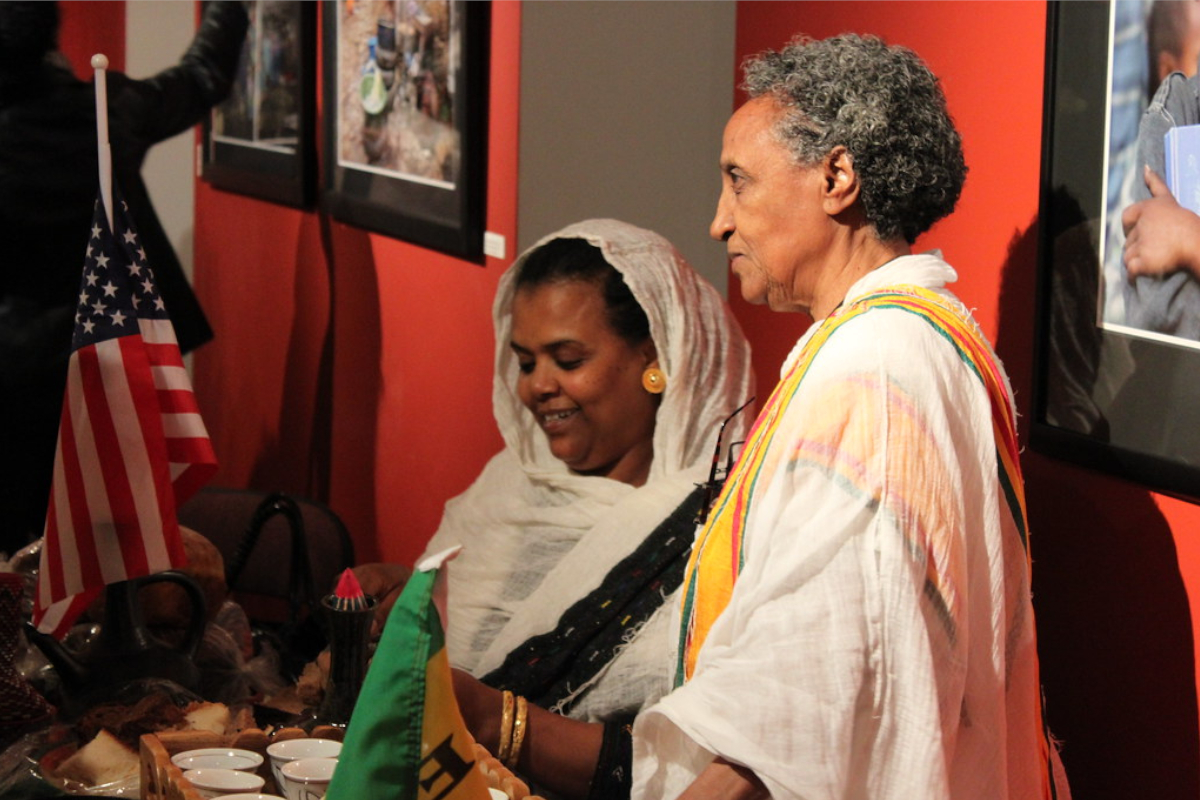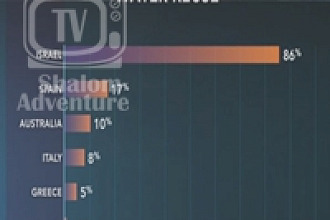A dramatic news story exposed the fact that there are 13 doctoral students of Ethiopian origin this year. I was happy for a short moment, though it then became clear that only 13 is really not OK. There are 10,000 doctoral students, and Ethiopians comprise only 0.1%, whereas they make up 2% of the population. Meaning, it's not OK that there aren't nearly 200 doctoral students of Ethiopian origin, in accordance, more or less, with their proportion of the population.
So the figures need to be explained. Firstly, the rate of Israeli-born students eligible for matriculation stands at 57%; the rate of Ethiopian-born or Ethiopian-origin students stands at 42%. Here as well, it's not OK that this number is "only" 42% and not 57%. Except that there is no immigrant group anywhere in the world — there just isn't — that achieved so much in such a short amount of time, when the initial conditions were so hard.
Even when moving on to examine university rates, it seems clear that the jump — from the early 90s until recent years — is an incredible one. There is no other population group that has risen so quickly. It didn't happen because of the racism that makes headlines in the Israeli press, and much less in the Israeli street. For every 10,000 interactions between Israelis of Ethiopian origin and veteran Israelis, there is one interaction that entails an expression of racism. But 9,999 cases won't reach the press. Just that one — about the bus driver who cursed at an Ethiopian passenger, or a graduate who wasn't accepted for a job, or a police officer who harassed — that's what makes headlines.
But the gap between the headlines and the reality is enormous. When the situation of Israelis of Ethiopian origin is compared with that of communities from elsewhere — the former have nothing to feel ashamed of.
Considering the starting point, when the parents and immigrants' generation didn't even know how to read and write, the achievements of the Ethiopians and their integration in Israel are something to be proud of. Much more needs to be done. There is poverty. There are ghettos in some of the cities. There is discrimination. But considering the macro picture, the need for more improvements mustn't obscure the positive, larger, much larger portion of the picture.
We can compare the situation to other immigrant communities in the world. It must be said that there are much bigger success stories. Hindis in the United States and in England succeeded much more than other groups did. Their achievements in education long ago surpassed the majority white group, including those of Jews, who used to be at the top. And not only Hindis; there are other Asian groups, from Korea, China and Japan, whose achievements are amazing. And other groups, also from Asia, others from Africa, are far behind, even groups in the second and third generation.
Which leads us to a very unpleasant question: is this because of the receiving society or rather because of the immigrant communities? The routine answer, which disguises itself as academic, points the blame at the receiving society. Racism and whatnot. How does that square with the fact that groups with dark brown skin, for example Hindis, still succeed, very much so?
Academic research generally goes along with the rules of political correctness. Every answer that also places responsibility on the "other" is viewed as an answer that is conservative, reactionary or even racist.
The thing is, reality must be seen for what it is. And in reality, and this isn't OK, cultural differences mean different achievements. It's not that the receiving society is exempt from responsibility. But facts about the background of the immigrant community must also be taken into account. For our purposes, take the fact that the starting point for immigrants from Ethiopia was the lowest of the low. Much lower than all other ethnic groups. And despite that, at the high school level, this group approaches the achievements of the population as a whole.
There is still not a suitable percentage of Ethiopians among the researchers at the Weitzman Institute, and that's not OK, and it can be turned into a headline. But if we are to be serious, the Ethiopians and receiving Israel have a lot of reasons to be proud. The Weitzman Institute can wait a bit. But at the current pace, Israelis of Ethiopian origin will get there too. As long as we don't give them, or anyone else, an exemption from personal responsibility. And as long as we don't convince them, and ourselves, that our story is only one of racism.
Come join us for an exciting trip to Israel in 2024. For more information, click here.


























